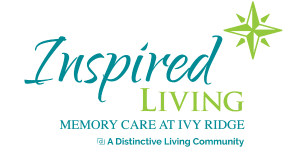Under the warm Florida sun, proper hydration is a year-round priority—especially for seniors living with dementia. Maintaining fluid balance supports all aspects of wellness, including physical health, cognitive clarity, and emotional regulation.
The best hydration drinks for seniors with dementia include infused water, herbal teas, smoothies, milk, low-sugar juices, electrolyte beverages, and warm broths—all tailored to taste, texture, and ease of use.
With a thoughtful approach to fluid intake, caregivers can dramatically improve quality of life for older adults with dementia.
Why Seniors with Dementia Are Prone to Dehydration
As people age, their ability to conserve water declines and their sense of thirst becomes less reliable. Seniors may not feel thirsty even when their body needs fluids, putting them at a higher risk for dehydration.
Memory loss can add new challenges. Your loved one may forget to drink water, while confusion or difficulty using utensils may prevent independent hydration. Medications, limited mobility, or difficulty swallowing (dysphagia) further increase the risk.
Signs and Symptoms of Dehydration
Recognizing dehydration early is critical. Common signs in seniors include:
- Confusion or increased irritability
- Dry mouth & sunken eyes
- Dark urine or infrequent urination
- Dizziness or weakness
- Fatigue or sudden changes in behavior
Even mild dehydration can mimic or worsen dementia symptoms. Proactive hydration is essential for maintaining both physical stability and cognitive function.
The Role of Optimal Hydration in Dementia Care
We all know the power of good nutrition for a sharp mind. But hydration is a vital, often overlooked part of that equation. Our bodies are primarily made of water (about 60%), so it’s no surprise that dehydration can significantly impact cognitive function, especially for seniors.
How Hydration Supports Cognitive Health
Water plays a vital role in brain function. It supports memory, attention, and processing speed—all of which can be affected by both age and dementia. Keeping the body hydrated helps regulate body temperature, maintain blood pressure, and reduce the risk of falls, UTIs, and confusion.
Daily Hydration Needs for Seniors
On average, seniors should aim for 6–8 cups (1.5–2 litres) of fluid per day. However, needs can vary based on health conditions and medications. Offering a variety of fluid sources and hydrating foods helps meet these goals more easily and enjoyably.
Best Hydration Drinks for Seniors with Dementia
Offering diverse, nutrient-rich drink options makes it easier to meet hydration needs while supporting wellness. These beverages are gentle on the system, flavorful, and dementia-friendly.
Water & Infused Water
Plain water is the gold standard for hydration, but many seniors find it unappealing. Adding fresh fruits (like oranges, lemons, or berries), herbs (like mint), or cucumber slices makes water more enjoyable and visually stimulating.
Serve water regularly throughout the day in clear, easy-to-hold containers. Infused options provide light flavor without added sugars and are especially appealing during Florida’s warmer months.
Herbal & Decaffeinated Teas
Warm drinks are often soothing, and you can offer caffeine-free herbal teas throughout the day.
Chamomile, peppermint, rooibos, or ginger teas are hydrating and comforting. Herbal teas can also create a calming sensory experience, which may help reduce agitation in residents with dementia.
Serve teas warm or iced and experiment with flavors and temperatures based on individual preferences. Familiar routines like “tea time” can also encourage more regular consumption.
Milk & Non-Dairy Alternatives
Milk is both hydrating and nutritionally dense. It provides protein, calcium, and vitamin D—all important for seniors’ bone health. Fortified almond, soy, or oat milk can be great alternatives for those who avoid dairy.
Offering milk at breakfast or bedtime is a simple way to add a hydrating, nourishing beverage to daily routines. Smoothies or flavored versions can help if your loved one dislikes the taste of plain milk.
Fruit & Vegetable Juices (Low-Sugar)
Juices can be an effective and tasty hydration strategy. You can dilute juice with water to help reduce sugar content.
Apple, pear, watermelon, and cucumber juices are gentle on digestion and often well-received. Vegetable blends like carrot or beet juice add variety and important antioxidants.
Always choose 100% natural juices with no added sugars, and avoid highly acidic options if the senior experiences acid reflux or sensitive digestion.
Nutrient-Rich Smoothies
Smoothies are a favorite in dementia care—they’re hydrating, nourishing, and customizable. Blend fruits, leafy greens, yogurt, milk, and nut butter for a rich, filling drink that’s easy to consume and digest.
Smoothies can also be adapted for texture if a resident has trouble swallowing. Add familiar fruits like bananas or strawberries to make the drink more appealing.
Electrolyte Drinks
Low-sugar electrolyte drinks like Pedialyte or coconut water help replenish lost fluids and essential minerals. They’re especially useful after physical activity, exposure to heat, or illness. The flavor and gentle sweetness can encourage hesitant drinkers to sip more frequently.
Seniors should enjoy these drinks in moderation to avoid excessive sodium or sugar.
Warm Broths & Light Soups
Soups count toward daily fluid intake and offer comfort, especially in the evenings. Vegetable, chicken, or bone broths provide hydration along with vital nutrients.
Low-sodium options are best for daily use. Serve soups as a snack or meal accompaniment to encourage consistent fluid intake while supporting warmth, satiety, and emotional comfort.

Supporting Hydration with Tools & Habits
Many people with dementia struggle to recognize or communicate when they’re thirsty. By proactively offering fluids and creating easy routines, family and caregivers can help seniors stay comfortably hydrated.
Building a Routine Around Hydration
Link fluid intake with daily events—morning routines, medication times, meals, or rest periods. Establishing predictable hydration points throughout the day helps form healthy habits.
Routine also provides comfort for individuals with dementia, reducing resistance and building trust. Use gentle prompts and consistent encouragement to support each drink offering.
Use Adaptive Tools & Visual Cues
Cups with handles, spill-proof lids, and bright colors can make drinks easier to spot and hold. Transparent containers help residents see how much they’ve consumed. Consider using labeled hydration bottles with time markers to guide both caregivers and residents.
For individuals with reduced dexterity or swallowing concerns, use straws, lidded cups, or thickened liquids when necessary. Always consult with a healthcare provider for specific dysphagia support.
Incorporate Hydrating Snacks
Hydration doesn’t have to come from drinks alone. Water-rich foods like watermelon, cucumber, strawberries, celery, or popsicles help add fluids throughout the day in an enjoyable, low-pressure way.
Snack times are perfect for offering fluids without interrupting routines or overwhelming residents. Pair snacks with tea, juice, or smoothies for added value.
Empowering Wellness at Ivy Ridge
For seniors with dementia, hydration is not just about preventing medical issues—it’s about preserving dignity, comfort, and daily quality of life.
Offering a variety of drinks, incorporating hydrating foods, and building routines with visual and tactile support empowers seniors to stay healthy, engaged, and safe.
At Inspired Living at Ivy Ridge, our personalized approach helps us meet each resident’s physical, cognitive, and emotional needs with compassion. Schedule a visit today to learn more about how we help seniors in St. Petersburg live well every day—one sip at a time.









